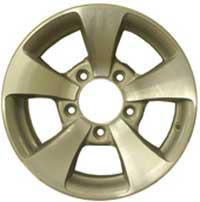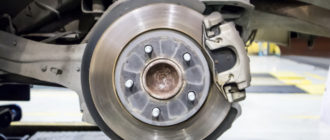Having your transmission fail is never a pleasant experience. Not only can it leave you stranded, but it can also be a costly repair. Knowing what to expect when your transmission fails can help you make informed decisions about how to proceed.
In this article, we’ll explore the common symptoms of transmission failure, the potential causes, and the steps you can take to prevent it from happening in the first place. Whether you’re a seasoned driver or a new car owner, this information is valuable to anyone interested in keeping their vehicle running smoothly.
From understanding the warning signs to learning how to take care of your transmission, we’ve got you covered. So, let’s dive in and explore what happens when your transmission fails, and what you can do to avoid it!

source: https://www.aamcocolorado.com/warning-signs-of-a-blown-transmission/
Signs of Transmission Problems
If you’re experiencing transmission problems with your vehicle, there are a few signs to look out for. One of the most common signs is a delay in shifting or the gears slipping. You may also notice a burning smell or strange noises coming from your transmission.
Other signs to watch for include difficulty shifting between gears or a sudden surge of power when accelerating. You may also notice that your vehicle is shaking or vibrating while you’re driving, which could be a sign of transmission problems.
If you’re experiencing any of these symptoms, it’s important to take your vehicle to a mechanic as soon as possible. Ignoring transmission problems can lead to costly repairs or even total transmission failure.
The good news is that there are steps you can take to avoid transmission problems in the first place. Regular maintenance, such as changing the transmission fluid and filter, can help keep your transmission running smoothly. It’s also important to avoid hard acceleration and sudden stops, which can put unnecessary strain on your transmission. By taking good care of your vehicle, you can help avoid transmission problems and keep your car running smoothly for years to come.
Signs of Transmission Failure
Your transmission is a critical component of your vehicle that allows power to transfer from the engine to the wheels. Over time, it can wear down and fail, leading to costly repairs or even a complete replacement. Some common signs of transmission failure include slipping gears, hesitating or stalling when shifting, whining or humming noises, and leaking fluid.
If you notice any of these signs, it’s essential to get your vehicle checked by a qualified mechanic as soon as possible to prevent further damage. Ignoring transmission problems can lead to accidents on the road and can be dangerous for both you and other drivers.
How to Prevent Transmission Failure
Taking proper care of your transmission can help prevent failures and save you money in the long run. Regular maintenance, such as changing the fluid and filter, can keep your transmission operating smoothly. It’s also essential to drive your vehicle with care, avoiding sudden stops and starts that can put excess strain on the transmission.
Additionally, upgrading to a high-quality transmission cooler can help dissipate heat and prevent overheating, which is a leading cause of transmission failure. Finally, if you notice any issues with your transmission, don’t wait to get it checked out. Catching problems early can often prevent major repairs or even a complete replacement.
How to Avoid Transmission Failure
Transmission failure is a major issue that can be costly and time-consuming to fix. To avoid this, it’s important to take proper care and maintenance of your vehicle. Here are some tips to help you prevent transmission failure:
- Regularly check and change your transmission fluid as recommended by your car’s manufacturer.
- Don’t overload your vehicle with heavy items as this can put excessive strain on the transmission.
- Avoid rapid acceleration and sudden stops as this can cause damage to the transmission.
- Use the correct transmission fluid for your car’s make and model.
- Regularly service your vehicle to ensure any potential issues are caught early.
By following these simple precautions, you can help avoid transmission failure and ensure your car stays on the road for as long as possible.
The High Cost of Transmission Repairs
Transmission failure is a nightmare scenario for any car owner. It’s a serious problem that can be expensive to fix, and the costs can vary depending on the extent of the damage. A minor repair can cost a few hundred dollars, while a major repair can cost several thousand dollars.

source: https://www.ridetime.ca/blog/5-transmission-problems-you-should-never-ignore/
The cost of transmission repairs is not only determined by the type of damage, but also the make and model of the car. Other factors that can influence the cost include the age of the vehicle, the condition of the transmission, and the type of transmission fluid used in the vehicle.
The best way to avoid transmission failure and costly repairs is to pay attention to your car’s maintenance needs. Regularly changing the transmission fluid, inspecting the transmission for leaks, and servicing the transmission can help prevent problems from arising. But if your transmission does fail, be prepared to spend a significant amount of money to get it fixed.
- Minor repairs can cost a few hundred dollars
- Major repairs can cost several thousand dollars
- The cost is influenced by the type of damage, make and model of the car, age of the vehicle, condition of the transmission, and type of transmission fluid used
- Maintaining your car can help prevent transmission failure and costly repairs
When to Get Professional Help
If you notice any strange noises, smells, or vibrations coming from your vehicle, it’s important to get it checked out by a professional as soon as possible. This is especially true when it comes to your transmission. Ignoring warning signs can lead to costly repairs or even transmission failure.
It’s also important to get professional help if you notice any leaks, slipping gears, or difficulty shifting. These are all signs that something isn’t functioning properly within your transmission and needs immediate attention.
While it may be tempting to try to fix the issue yourself, it’s important to remember that transmission repairs can be complex and require specialized knowledge and tools. Attempting to repair it yourself can lead to further damage and more expensive repairs in the long run.
- Don’t ignore warning signs
- Get professional help for leaks, slipping gears, and difficulty shifting
- Leave transmission repairs to the professionals
At the end of the day, it’s always better to be safe than sorry when it comes to your vehicle’s transmission. If you suspect that there may be an issue, don’t hesitate to get it checked out by a professional. It could save you time, money, and a major headache down the line.
Signs that your transmission is about to go out include slipping gears, unusual noises, vibrations or grinding, fluid leaks, and difficulty shifting. If you experience any of these signs, you should take your car to a reputable mechanic as soon as possible to prevent further damage.
The most common causes of transmission failure include lack of maintenance, low or dirty transmission fluid, overheating, and hard driving habits such as sudden acceleration or heavy towing. Regular maintenance and good driving habits can help prevent transmission failure.
If you continue to drive your car with a failing transmission, it can lead to further damage and even complete failure of the transmission. This can result in costly repairs or even the need for a full transmission replacement.
While it is not always possible to prevent transmission failure, regular maintenance such as fluid changes and inspections can help identify and address potential issues before they become major problems. Good driving habits such as avoiding sudden acceleration and not overloading your vehicle can also help prevent transmission failure.
The cost to replace a transmission can vary widely depending on the make and model of your vehicle, as well as the type of transmission you need. On average, you can expect to pay anywhere from $1,800 to $3,500 for a replacement transmission, including parts and labor.
Yes, in some cases it is possible to rebuild a transmission rather than replacing it. This can be a more cost-effective option, but it is important to work with a skilled and reputable mechanic to ensure that the rebuilding process is done correctly and that the transmission is reliable and safe.
The recommended frequency for transmission fluid changes varies depending on your specific vehicle and driving habits. In general, it is recommended to have your transmission fluid changed every 30,000 to 60,000 miles. However, you should always refer to your owner's manual or consult with a trusted mechanic for specific recommendations for your vehicle.
To extend the life of your transmission, it is important to practice good driving habits such as avoiding sudden acceleration, not overloading your vehicle, and not shifting into reverse until your car has come to a complete stop. Regular maintenance such as fluid changes and inspections can also help keep your transmission running smoothly.






